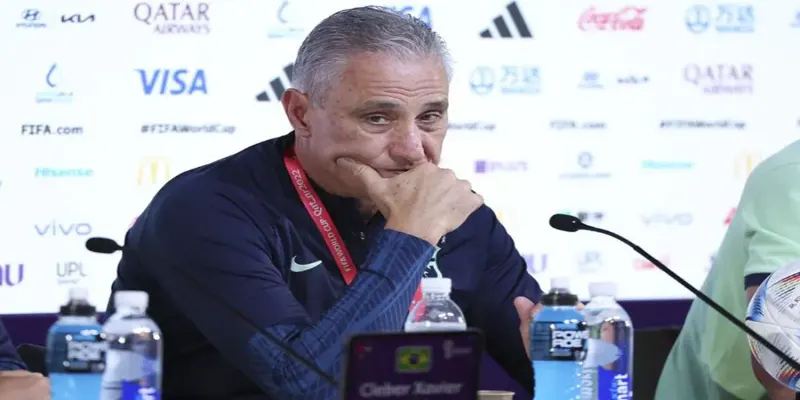HLV Tite stands out as a legendary figure in Brazilian football, celebrated for his tactical brilliance, leadership, and deep passion for the game. From club success to guiding the national team, his strategies and vision have shaped modern Brazilian football. This article dives into Tite’s coaching philosophy, key achievements, and moments of controversy, highlighting how his influence continues to inspire players and fans alike. For insights into live match updates and tactical analyses, check out Socolive TV to stay connected with the pulse of football.
Biography of HLV Tite
Born as Adenor Leonardo Bacchi on May 25, 1961, in Caxias do Sul, Brazil, HLV Tite’s journey into football was rooted in his early fascination with the game and a pragmatic approach to understanding team dynamics. Initially, he played as a midfielder in various local clubs, but it was clear from an early stage that his passion lay more in coaching and tactical strategy than in playing at the highest level. His transition from player to coach was marked by a methodical rise through the ranks of Brazilian football, starting with youth teams and lower-division clubs.
Over the years, HLV Tite developed a reputation for meticulous planning, adaptability, and a keen eye for talent. His coaching career is distinguished by a series of successes and lessons learned from both triumphs and setbacks. His tenure has spanned various clubs such as Grêmio, Corinthians, and Palmeiras, where he built a reputation for turning around teams and cultivating a winning mentality. His leadership qualities and tactical innovation eventually led to his appointment as the head coach of the Brazilian national team in 2016, a role that has elevated his status to one of the most influential figures in contemporary football.
HLV Tite’s Coaching Philosophy
At the core of HLV Tite’s coaching philosophy is a belief in collective effort, tactical discipline, and respect for the technical fundamentals of the game. He emphasizes adaptability on the pitch, insisting that players must be versatile and willing to adjust to the demands of different opponents and game situations. Tite advocates for a balanced style of play—attacking when opportunities arise but maintaining defensive solidity—encapsulating a pragmatic approach that prioritizes results while fostering attractive football.
Beyond tactical flexibility, Tite places a strong emphasis on mental preparedness and team cohesion. His coaching philosophy includes cultivating a positive team environment, fostering leadership within the squad, and ensuring players understand their roles thoroughly. He advocates a game model rooted in possession-based football, yet flexible enough to switch to quick counter-attacking strategies when necessary. His approach reflects a deep respect for Brazil’s footballing heritage while synthesizing modern techniques and data-driven insights, making his philosophy both rooted in tradition and innovative.
Tactics and Formation Used by HLV Tite
HLV Tite’s tactical approach is characterized by a flexible 4-2-3-1 or 4-3-3 formation, adapted to suit the strengths of his squad and the tactical demands of each opponent. He is renowned for his emphasis on high pressing and swift ball movement, aiming to regain possession quickly and launch rapid attacks. His teams often display compact defensive lines, emphasizing disciplined positional play and coordinated pressing to minimize space and deny opponents opportunities.
In practice, Tite’s tactical flexibility allows his teams to morph seamlessly from defensive solidity into attacking phases. For instance, he often deploys full-backs as overlapping wing-backs to add width and support the attack, while central midfielders function both as ball retainers and initiators of offensive play. His tactics also incorporate an emphasis on set pieces, exploiting the aerial strength of key players to create scoring opportunities. His in-game adaptability, combined with meticulous planning, makes him a formidable strategist who expertly adjusts tactics based on game flow and opponent analysis.
HLV Tite’s Achievements with the Brazilian National Team
HLV Tite’s tenure with Brazil’s national team has been marked by notable achievements that reflect his strategic prowess and leadership. Under his guidance, Brazil qualified convincingly for the 2018 FIFA World Cup and made a commendable run, reaching the quarter-finals—a disappointment by Brazilian standards but a testament to his ability to prepare the team effectively. He also captained Brazil to victory in the 2019 Copa América, ending a long-standing trophy drought and reaffirming Brazil’s dominance in South America.
Moreover, Tite’s influence extended beyond trophy wins. His emphasis on modern coaching methods and player management helped restore a sense of discipline and team unity within the squad. His tactical setups often maximized the strengths of players like Neymar, Casemiro, and Alisson, integrating new talents seamlessly into the team’s tactical fabric. His commitment to developing a cohesive footballing identity that balances tradition with innovation has left a lasting imprint on Brazil’s international performances and inspired significant strategic shifts within the national setup.
Controversies Surrounding HLV Tite
Like many high-profile managers, HLV Tite has faced his share of controversies and criticisms throughout his career. Some detractors argue that his tactical choices sometimes appear overly cautious, especially in high-stakes tournaments where Brazil’s attacking flair is often expected to flourish. Others have pointed out that his teams occasionally lack spontaneity and risk-taking, sparking debates about his adherence to pragmatic football at the expense of entertainment.
Additionally, questions have been raised regarding squad selection and player discipline, especially during major tournaments. Tite’s strict coaching style and emphasis on tactical discipline have sometimes been perceived as rigid, leading to conflicts with players or coaching staff who prefer more expressive styles of play. Controversies regarding team management decisions and tactical adjustments during critical matches have also fueled debates about whether his approach is sufficiently offensive-minded or adaptable enough to counter the evolving tactics of rival nations. Despite these controversies, his overall impact has remained largely positive, bolstered by his results and leadership qualities.
